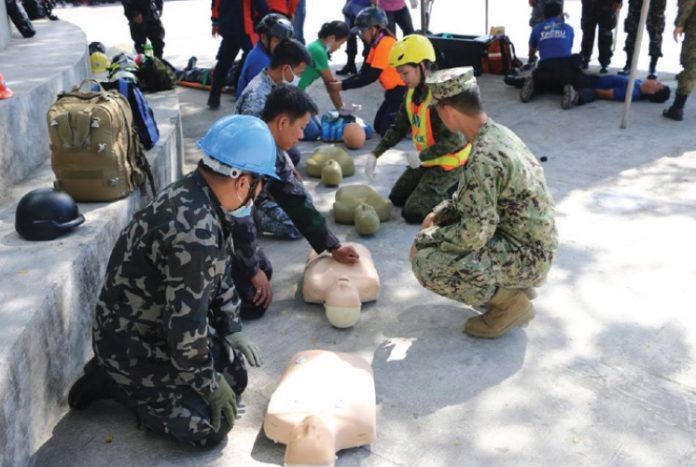
Lope de Vega is the lone area in EV in the list
TACLOBAN CITY- The Commission on Elections (Comelec) has placed the entire town of Lope de Vega in Northern Samar under its watch list area relative to the conduct of the May 13 elections.
Lawyer Felicisimo Embalsado, Comelec assistant regional director, said that the town was placed under its category ‘red’ hot spot.
The Comelec places an area under its category red hot spot if an area has a history of political violence and with strong presence of armed and rebel groups.
The poll body uses color in identifying areas of concern relative to the May 13 elections with color red as the most ‘critical.’
“The red color is the highest one,” Embalsado said.
Lope de Vega is the only area in the region which was placed under the red category joining the entire Mindanao Island and Abra province.
Embalsado said that with the placing of Lope de Vega under the red category, the poll body together with the Armed Forces of the Philippines(AFP) and the Philippine National Police(PNP) will give their focus to the said area.
This way, conduct of the elections at Lope de Vega would not be hampered with the voters exercising fully their rights of suffrage or whom they want to become their leaders, he added.
Embalsado added that the possibility of providing additional presence of soldiers or police to Lope de Vega with its placing as a critical poll area, is high.
“It’s possible that its security force will be augmented,” he said.
The Comelec assistant regional director said that their office as well as the PNP and the AFP, through the 8th Infantry Division, will have their joint meeting as part of their security preparation to ensure that the conduct of elections in the region will be peaceful and orderly.
He said that they are also conducting coordination with the Church, adding that the PNP in particular has a campaign dubbed as ‘Usap’ or Ugnayan ng Simbahan at Pulis.
Meantime, in Calbayog City, about 152 firearms were presented by the Samar police provincial headquarters to Chief Supt. Dionardo Carlos, police regional director.
The firearms were voluntarily surrendered by some politicians and civilians to the police authority.
Samar police provincial director Senior Supt. Dante Novicio said that the measure will help in making sure that the conduct of elections in Samar will be peaceful and orderly.
“Now that these firearms are with us, we can be assured that these will never be used in illegal activities,” Novicio said.
“We will take away the possibility that these people will use these firearms in violence this coming election,” he added.
Police Regional Director Chief Supt.Carlos, in his message during the event, gave an assurance to the candidates and the public that they will make sure that the coming election will be peaceful.
“This measure that the police is undertaking is to ensure that come elections day we will have less risk factors,” Carlos said.
BY: JOEY A. GABIETA, ROEL T. AMAZONA


